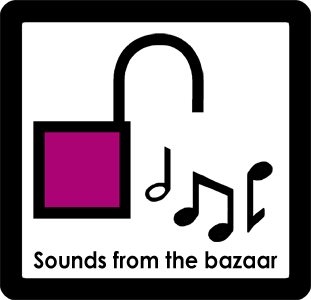
There seems to be quite a bit of interest in Freefolio, the WordPress based Social e-portfolio we have been developing together with our partners Raycom.
We have put together a roadmap for further development over the next six or so months. If you have ideas for what else should be on the roadmapo please do get in touch. And if you would like to join the development effort that would be most welcome. We are aware that we have slipped in our target of releasing an installable but we have not forgotten.
1. Developing a repository
Integrate a proper (standards based) lightweight document repository for uploading, storing and accessing different digital artefacts (e.g. documents, etc.).
The repository will allow users to store different objects, including text, audio, photographs and video, to access and annotate those objects and to report on their wok in different presentation formats.
Users will be able to share access to their work with those they choose.
The repository will conform to technical standards and will allow users to copy their work to portable media, if they wish. This will facilitate interoperability with other portfolios and learning applications.
For instance if a leaner progresses to university they will be able to transfer their work including multimedia objects.
2. Reporting views, building blocks
Develop a system module for allowing users to present achievements – should be flexible and allow multiple ‘views’. The module will provide templates to allow users to easily present different views of their work for different purposes, for instance for supporting job applications, for applications for further courses or as part of their curriculum activities. The templates will provide structures to assist learners in developing their presentations. Users will be able to choose different objects form the portfolio to form part of the presentations.
Different presentations can be stored within the portfolio or exported to portable media.
Once more users will be able to control with whom they share their presentations.
3. Improvements to profile
Develop system to allow administrator control of profile template.
Also examine feasibility of making links between different people with same interests/goals in the user profile.
The development of the profile template will make it easy for administrators to customise the template for different installations of the portfolio. The ab9lity to automatically link people with similar interests of similar learning goals will facilitate peer group learning and the development of groupwork. The system will allow learners to find materials and posts relevant to their personal and learning interests of their learning.
4. Improvements to the Personal Development Profile (PDP)
Develop reusable template for PDP process. Allow reviewing and reporting on progress towards goals. Allow view of goals and progress over time.
The further development of the Personal Development Profile will allow users to easily view their progress over time, to reflect on that progress and to develop a record. This will assist in developing learners’ abilities for planning and evaluation.
5. Improve groups functionality
Make it easier to form on the fly groups for sharing and collective activities. his will make it possible to develop working areas for different groups of learners, for instance for undertaking shared projects. Work undertaken in groups may be used as part of the presentations as in 2 above.
5. Styling, choice of styles
Allow users choice of style/design.
Research has shown the importance to learners of being able to give their portfolios their own look and feel. We will develop a number of different styles for users to choose from and will facilitate those who are able in developing their own styles.
6. Scaling
Further develop administrative systems to allow easier install and scaling for multiple group use.
Develop an installable version of Freefolio which may in future be installed on clients systems if they wish.
 The first of the new series of Sounds of the Bazaar. In this new series we will be experimenting with our programme formats. We will be publishing a series of short podcasts around particular issues in learning and technology. And we will be podcasting as series of podcasts focused on practice. What makes some programmes so compelling and some so dull. Is it down to the technology? Is it a matter of following an instructional design manual? Is it the skills and personality of the teacher? How can social software and web 2.0 be used for learning.The first of the series features a dialogue with
The first of the new series of Sounds of the Bazaar. In this new series we will be experimenting with our programme formats. We will be publishing a series of short podcasts around particular issues in learning and technology. And we will be podcasting as series of podcasts focused on practice. What makes some programmes so compelling and some so dull. Is it down to the technology? Is it a matter of following an instructional design manual? Is it the skills and personality of the teacher? How can social software and web 2.0 be used for learning.The first of the series features a dialogue with 
